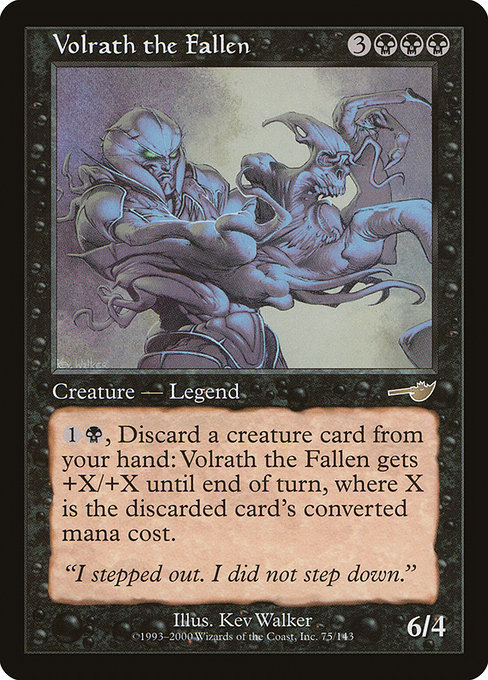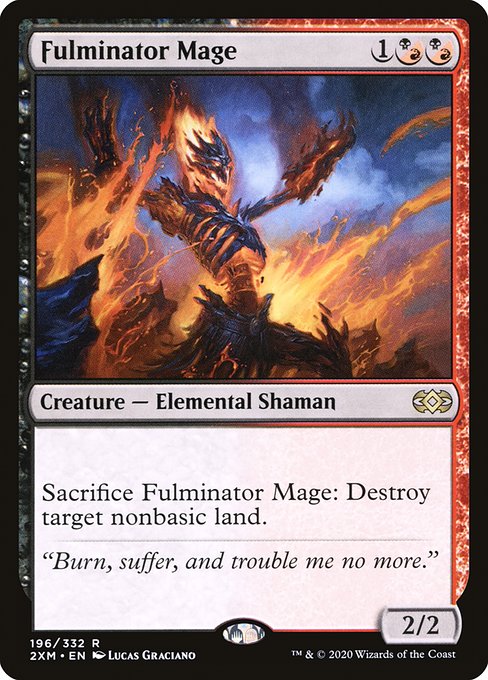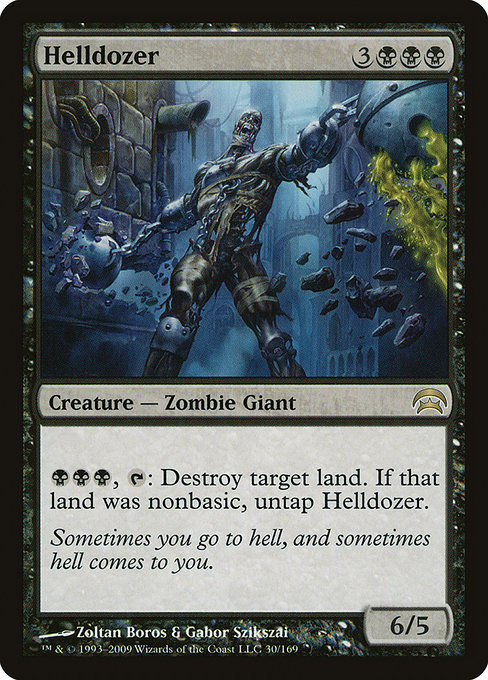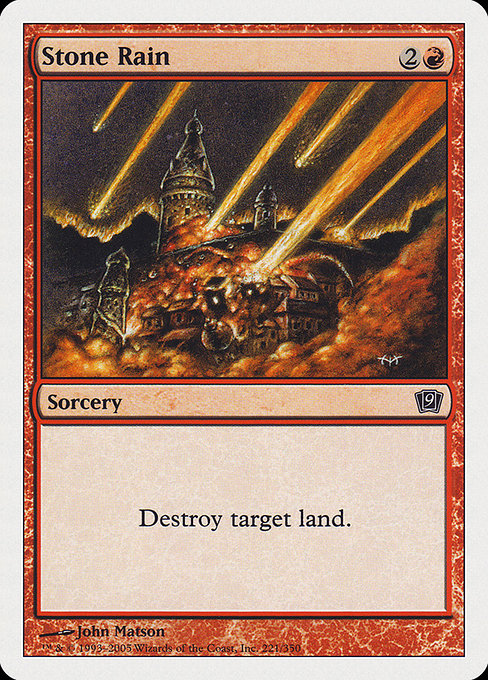Something strange happened to this (mostly) mono-black player. I was preparing my new Volrath the Fallen deck for weekend play when I had a funny thought. I never play red. What if I did? Wouldn’t that be funny if I made a jank red deck and brought it to our group? Haha. Oh man. And so I did. I put together a mono-red deck full of random red cards that I barely paid attention to, since I so rarely pay attention to red at all.

You know what? The deck was good. Not just good. I won a game. Like, legitimately. Reader, know this: I never win games. Ever. I’m more of a chaos agent at the table, apparently. If I win, fine. But I just like being in the game and trying to keep the complexity going. But this red deck was insatiable. It just had an engine. Anyway, what proceeded was a sarcastic litany of “I told you to quit black!” from acolytes and “You’ve gone to the dark side!” from other fellow red teetotalers.
In any case, it got me thinking about Rakdos. And then about Fulminator Mage. Which is my go to Rakdos card, mainly cause I played it in a version of a mostly black discard/control deck in Modern. I (gasp!) got to liking, or at least appreciating, land destruction when done strategically and for non-jerk purposes. And let’s be honest: I could see the allure, the appeal, the dark seduction of it. Black and red like to do this. More traditionally, red excelled at it.

This was a tad shocking to me because I’d been introduced to land destruction via black cards like Smallpox, Maw of the Mire, Rain of Tears, and (as a mana ability on a creature) Helldozer.
However, Fulminator Mage is a 2/2 creature for 1(B/R)(B/R) that reads Sacrifice Fulminator Mage: Destroy target nonbasic land. This creature wouldn’t work in Commander. Or, well, it’s taking up a card slot that could be better filled something else. But played in Modern, it was a fun way to slow an opponent turn three before they cracked a fetch. Or I could leave it as a blocker and sac before damage accrues. (Before people come at me, I’m sure Fulminator is “unplayable” in Modern. I liked it anyway.)

Which leads me to the rhetorical aspect of this card. I find that if I’m going to destroy a land, something about the game needs to balance out. Thus, Smallpox made sense to me. An isomorphic action taken on both sides with the hope that my back-up plan is stronger than theirs. Not that throwing a Stone Rain at someone is bad, per se. But it can lead to that feelbadism that I talked about earlier.
As was written about in a recent “Lowry Muses” column, land destruction isn’t taken well. Not just in Commander, but in lots of formats. But something about having a body with the activated ability makes it more…acceptable? Because when you Stone Rain, you pay the cost and you’re done. But with a Fulminator Mage, I’m paying for the body, and then hopefully it does something. And eventually, maybe, I’ll sac it to trash a non-basic land.

What may make Fulminator less irritating is its target–non-basic lands. Whether you’re pro or con dual lands, fetch lands, shock lands, whatever–these are the essential hooks on which a strong game is played. I just can’t think of a strong deck that doesn’t have some kind of ramp or mana efficiency.
The card acknowledges this by not allowing you to Stone Rain a land. You “fulminate” it. By the way, the mage in the card is a fulminator because, in Latin, fulminatus comes from a word meaning “strike with lightning” and “set on fire with lightning.” But it can also mean to launch “a verbal attack” or “to issues as a denunciation.” Again and again, we see these cards doing double duty as small symbols that funnel our gamesmanship into coded actions. A game is a game. But strategically removing the game pieces from the game is a form of mutual self-destruction that says more than destroy non-basic land. I’ve not yet come to a conclusion about what it may be actually saying, but I know that any game which is open to self-disarticulation is a game I’m willing to play for a long time.
Kyle Winkler (he/him) is a teacher and fiction writer. While he was pre-teen when Magic: The Gathering was released, he didn’t start playing until recently. He’s the author of the cosmic horror novella (The Nothing That Is), a collection of short stories (OH PAIN), and a novel (Boris Says the Words). His favorite card is a toss up between Crypt Rats and Oubliette.

